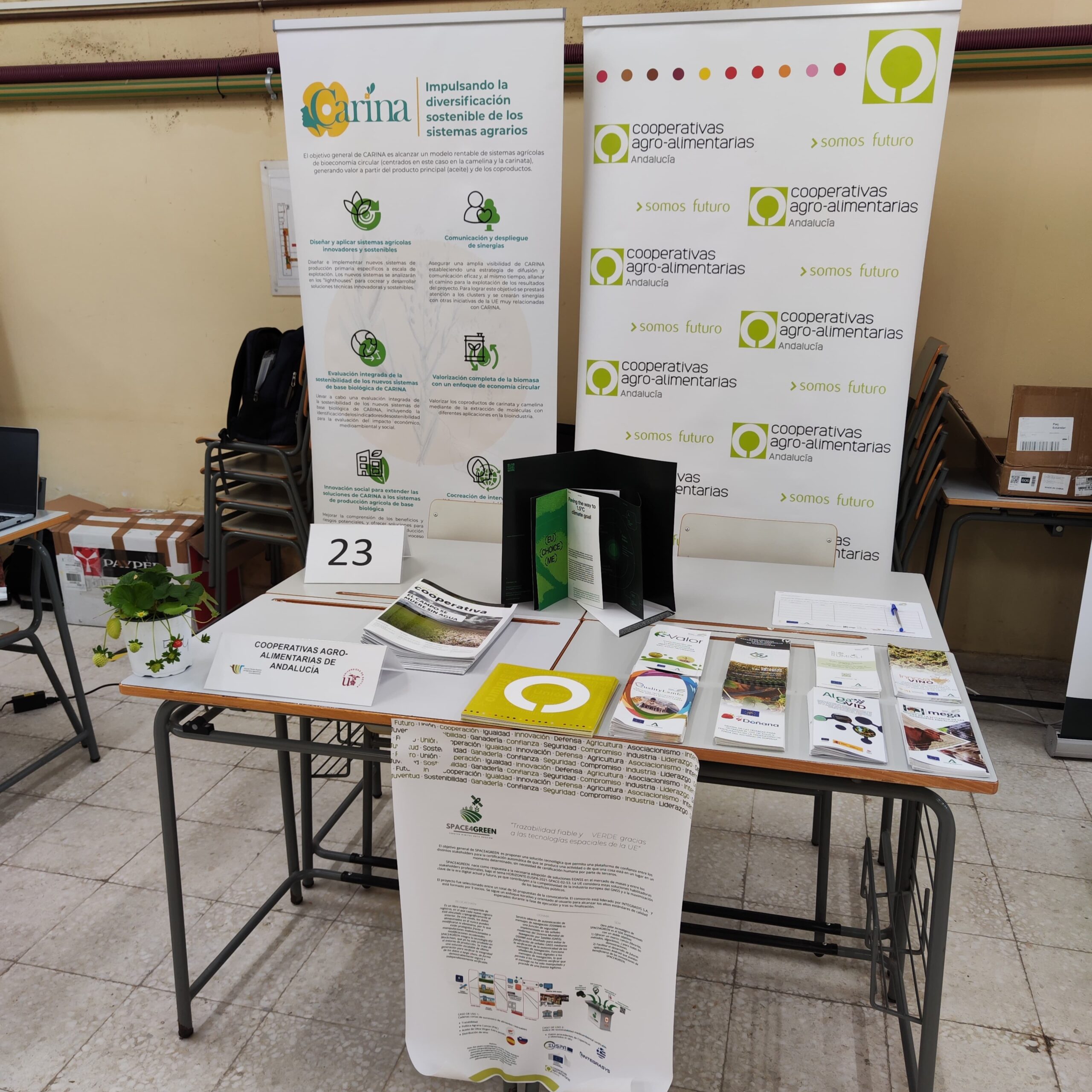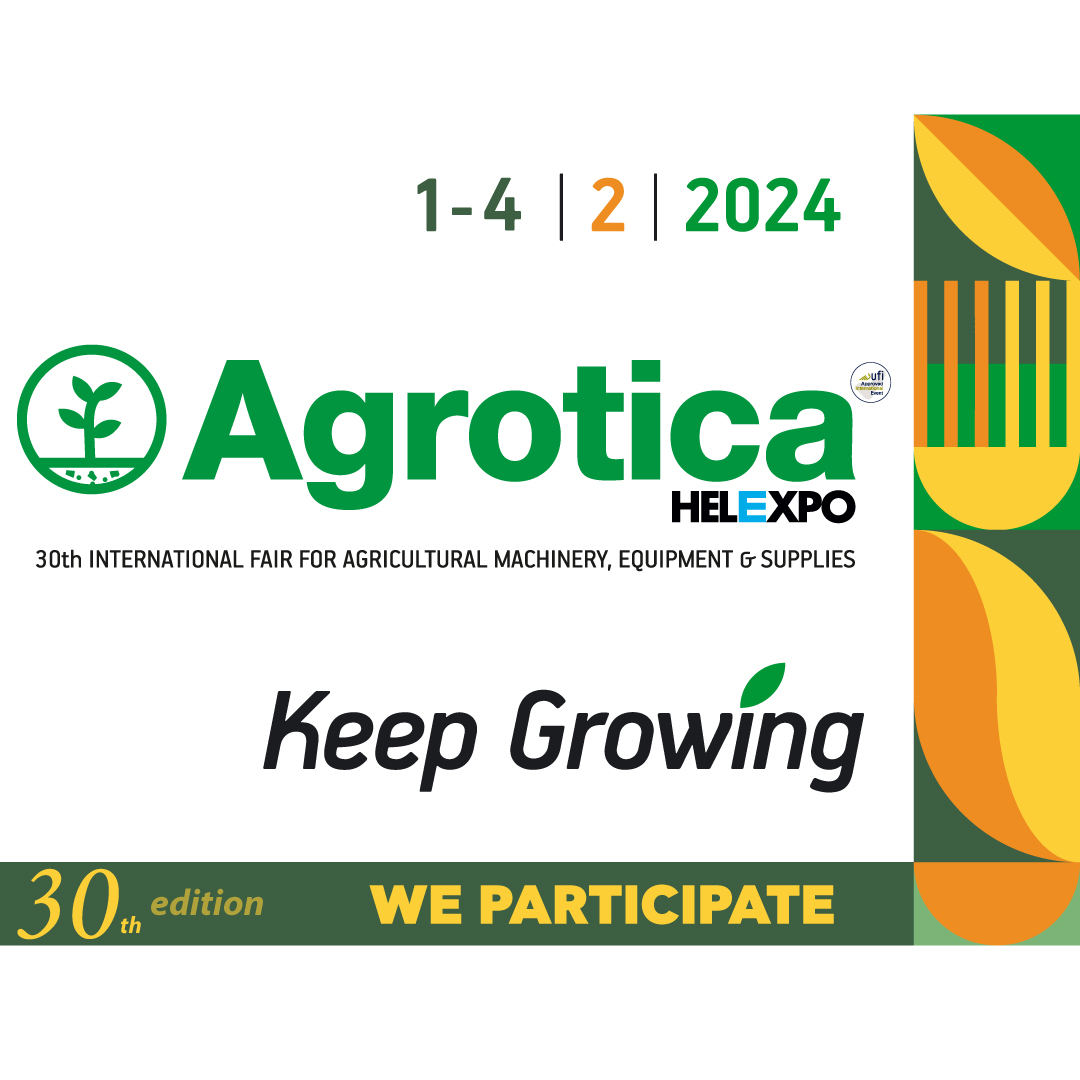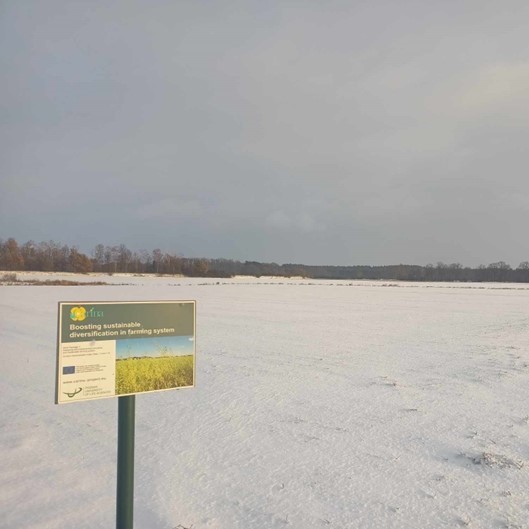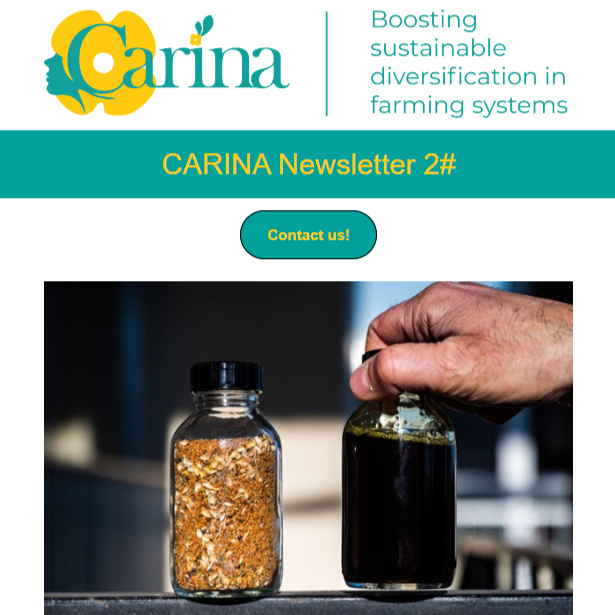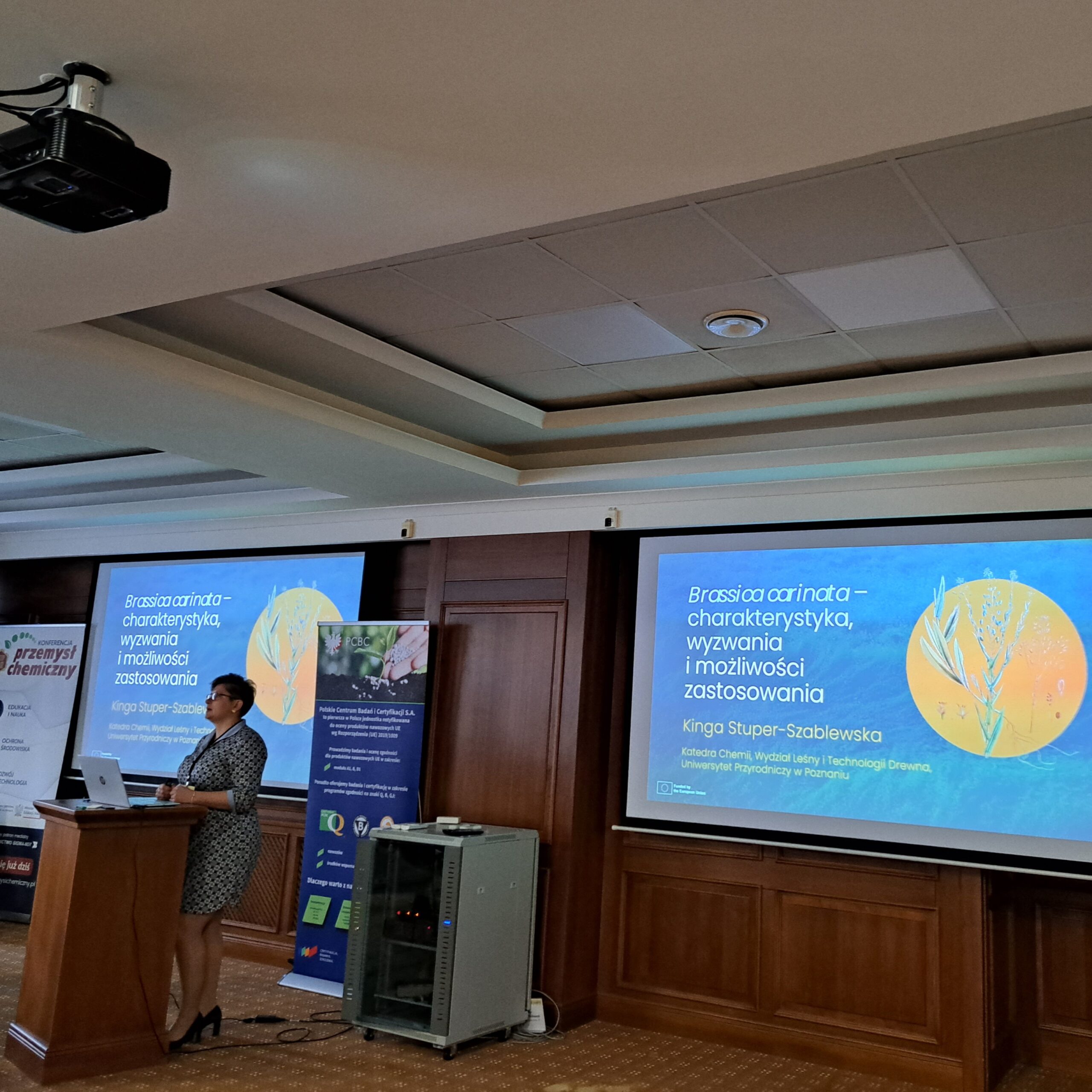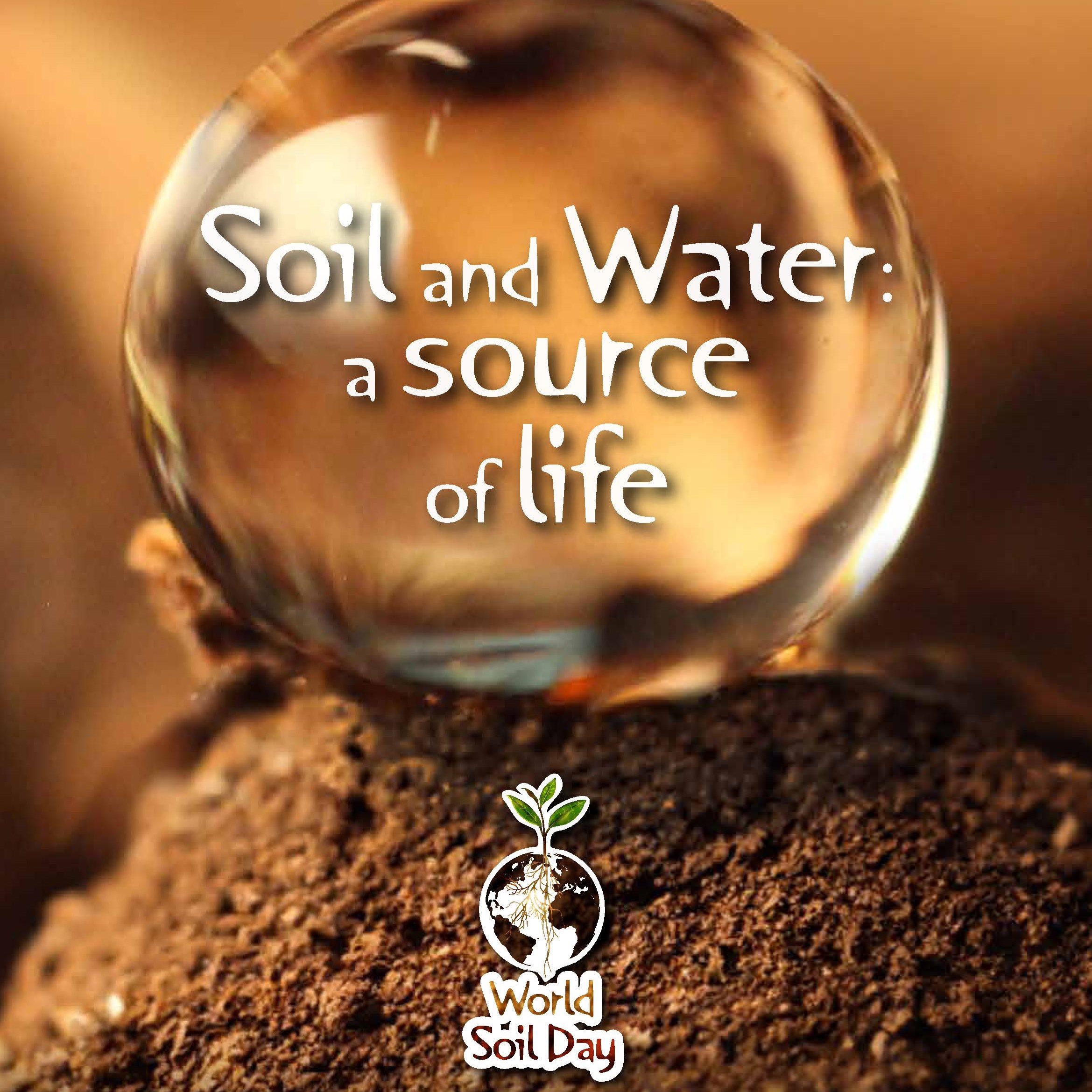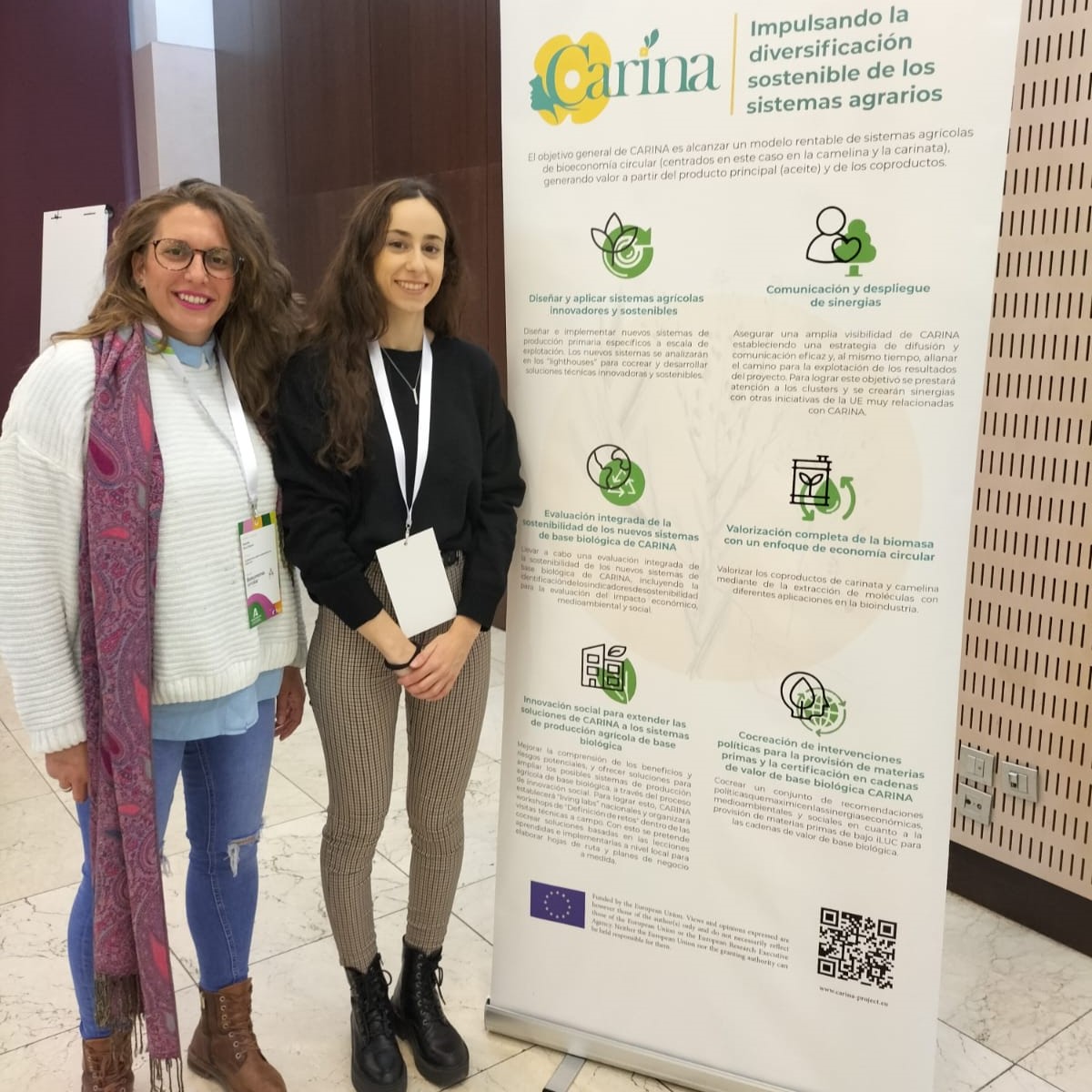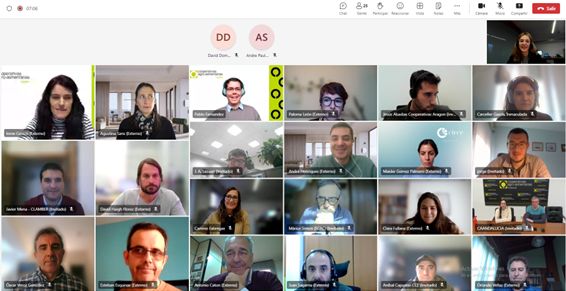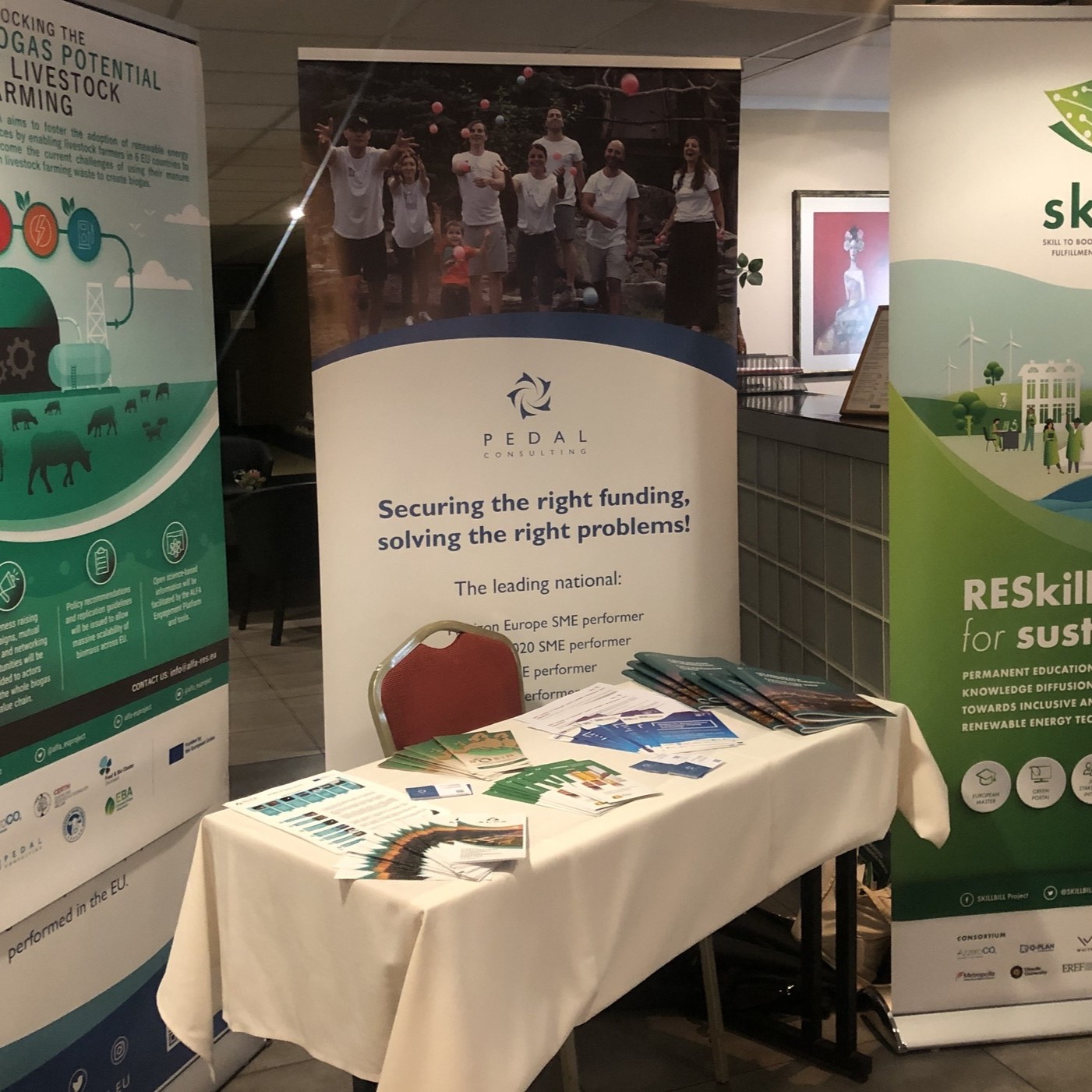In a stride towards fostering agricultural innovation and sustainability, Cooperativas Agro-alimentarias de Andalucía, an entity affiliated to Spanish Co-ops in the CARINA project, recently disseminated CARINA at the University of Seville’s open day on February 20th.
Cooperativas Agro-alimentarias de Andalucía presented the CARINA project at this event, providing students with insights into its visionary objectives and ambitions. The event facilitated meaningful discussions about the future of agriculture, emphasizing sustainability, innovation, project’s commitment to revolutionizing farming practices and the role of collaborative efforts.
Cooperativas Agro-alimentarias de Andalucía’s participation in the open day cultivated awareness and interest among the next generation of agricultural leaders. By sharing the project’s goals, the team aims to inspire future farmers and innovators to embrace sustainable practices.
Exploring Social Innovation: A Journey Towards a Sustainable Future
Understanding Social Innovation
Social innovation is more than just technological advancements; it’s about transformative change. It involves developing new ideas, strategies, or initiatives to address social needs effectively and sustainably. Social innovation goes beyond traditional approaches, aiming to create positive impacts for communities and foster inclusive growth.
The EU’s Commitment to Social Innovation
The European Union takes a leading role in embracing social innovation across sectors. It prioritizes social-ecological innovation and economic revitalization, particularly in remote rural areas. The EU collaborates with public authorities, civil society, academia, and enterprises to discover innovative solutions for societal challenges, ensuring inclusive growth and improved living conditions.
CARINA’s Social Innovation Focus
CARINA project places social innovation at its core. It embraces a paradigm shift from conventional to multi-species systems, engaging local stakeholders and fostering team collaboration. CARINA’s approach involves translating circular, low-carbon bioeconomy goals into actionable steps, creating a significant economic impact by reaching potentially 3 million farmers through direct partnerships.
Why Social Innovation Matters?
Addressing complex challenges, social innovation offers fresh perspectives on issues like poverty, inequality, and climate change. It fosters collaboration, bringing minds from various sectors together for innovative, interdisciplinary solutions. Social innovation is a powerful force for positive change, ensuring that innovation benefits everyone and contributes to a more sustainable and equitable future. Embrace the power of social innovation—it’s not just a concept, it’s a roadmap towards a better world.
Centre for Renewable Energy Sources and Saving (CRES) at Agrotica 2024 with Camelina Insights
We are delighted to extend an invitation to the Camelina Workshop, on February 1, 2024, in Thessaloniki, Greece. This workshop holds significant importance as part of Agrotica 2024, Greece’s largest agricultural exhibition.
The workshop provides a unique opportunity to share valuable insights, discoveries, and innovations in the cultivation and applications of camelina and also a comprehensive exploration of the latest breakthroughs in camelina research and sustainable farming practices.
CARNIA’s project partner CRES will have a dedicated stand at Agrotica 2024, running from February 1 to 4, 2024. At this stand, CRES will highlight the ongoing research in camelina from both the 4CE-MED and CARINA projects. Everyone is invited to visit this stand, grab informative leaflets, and engage in enlightening discussions about the future of sustainable agriculture.
This event promises to be an enriching experience for all stakeholders in the agricultural sector. Join us at the Camelina Workshop and Agrotica 2024 to be part of an insightful journey into the world of sustainable farming practices.
Poznan University of Life Sciences – Winter Update: Braving the Cold in Poland with the Carina Project
As winter blankets Poland in its icy embrace, the Carina Project team at Poznan Universoty of Life Sciences is facing new challenges and forging ahead with resilience, much like the camelina plants they are nurturing.
Battling Extreme Cold
The recent plunge in temperatures to a frigid -15 degrees Celsius across various locations in Poland has put the Carina Project team on high alert. This extreme cold, coupled with a scant snow cover, has raised concerns about the survival and resilience of camelina, a plant known for its hardiness. The team is closely monitoring the situation, hoping their efforts will enable the camelina to withstand these harsh winter conditions.
Focus on Measurement and Analysis
In the midst of these challenges, the team remains committed to their research objectives. They are currently engaged in meticulous measurements and analysis of plant specimens from the previous season. This work is crucial in understanding the growth patterns and environmental responses of camelina, which could offer insights into how plants adapt to extreme weather conditions.
The Importance of the Carina Project
The Carina Project, a cornerstone of Poznan University of Life Science’s research initiatives, is dedicated to studying the growth and sustainability of camelina. This plant is not only resilient but also has the potential to be a valuable resource in biofuel production and ecological conservation efforts. The data gathered by the team this winter will be instrumental in furthering our understanding of camelina and its role in sustainable agriculture.
Looking Ahead
Despite the current challenges posed by the harsh Polish winter, the Carina Project team is optimistic about the future. Their ongoing work and findings will contribute significantly to the field of agricultural science and environmental sustainability. As the winter progresses, the team remains vigilant, hopeful that their efforts will yield positive results for camelina’s resilience and for future agricultural practices.
CARINA Project’s 2nd Newsletter
We are thrilled to announce the release of the 2nd Newsletter for the CARINA Project! This edition highlights our ongoing efforts and achievements in promoting sustainable agricultural practices through the innovative cultivation of carinata and camelina.
The full newsletter is available on here.
Stay tuned for more updates, and thank you for your continued support!
PULS Scientists at the “Chemistry for Agriculture” Seminar
On November 26-29, the 47th edition of the Scientific and Technical Seminar, “Chemistry for Agriculture,” took place in Karpacz, Poland. This seminar has provided a platform for the exchange of experiences and collaborative discussions. At the forefront of this dynamic event were the brilliant scientists from PULS, actively participating and sharing interesting insights.
Prof. Kinga Stuper-Szablewska, took center stage to present the visionary assumptions and goals of the CARINA project.
Dr. Monika Grzanka, delved into the results of greenhouse herbicide tests on plants covered by the CARINA project. Both presentations sparked interest among attendees, emphasizing the steps being made in the field of sustainable agriculture.
These engaging sessions highlighted the commitment of PULS scientists to contribute to positive change in agriculture. PULS continues to illuminate pathways for sustainable and innovative practices in agriculture, paving the way for a greener and more resilient future.
World Soil Day – 5th of December 2023
Our planet’s survival hinges on the intricate connection between soil and water, the bedrock of sustenance for all living beings. Over 95% of our food comes from these essential resources, with soil water serving as a critical channel for nutrient absorption by plants, connecting our ecosystems together. This symbiotic relationship forms the cornerstone of our agricultural systems.
Yet, confronted with the dual challenges of climate change and human activity, our soils face degradation, putting stress on our water resources. Erosion disrupts the natural balance, reducing water infiltration and availability across diverse life forms.
Embracing sustainable soil management practices becomes very important in this context. Techniques such as minimum tillage, crop rotation, organic matter addition, and cover cropping emerge as proactive measures to fortify soil health, reduce erosion and pollution, and amplify water infiltration and storage capacities. These practices, beyond their immediate benefits, also act as guardians of soil biodiversity, enhance fertility, and contribute significantly to carbon sequestration, crucial elements in the ongoing battle against climate change.
World Soil Day 2023 (WSD), and it’s campaign, aims to underscore the importance and relationship between soil and water, key players in the pursuit of sustainable and resilient agrifood systems. WSD not only serves as a global celebration of soils but also stands as a call for action, empowering and engaging citizens worldwide to actively participate in enhancing soil health.
World Soil Day is not just a celebration but a call for action. In Carina we realize the importance of soil health and quality and it is our mission to promote and implement practices that enhance soil fertility, preserve biodiversity, and improve water infiltration and storage.
CARINA at the Circular Bioeconomy Forum
In a gathering of minds and innovation, CARINA actively participated in the Circular Bioeconomy Forum held in Sevilla on November 21. This forum served as a dynamic nexus for stakeholders in the circular bioeconomy, facilitating exchange of experiences and insights. It provided a platform for sharing best practices in sustainable farming, fostering partnerships, and aligning strategies for a collective, positive impact. The forum aimed to facilitate an exchange among diverse groups dedicated to the bioeconomy sector, showcasing a commitment to fostering collaboration at various levels.
At the heart of this event, CARINA’s project partner, Cooperativas Agro-Alimentarias de Andalucía, presented the CARINA project in the exhibition area. This allowed CARINA to share its mission and contributions to sustainable and diversified farming systems.
Topics discussed at this event included:
– Bioeconomy policies and strategies in different regions
– Weaknesses, threats, strengths and opportunities established by this model
– Success stories and practices developed
– Analysis of markets and business and consumer models
– Bioproducts and biomass resources generated by the different sectors
Bioeconomy and resilience to environmental and climate challenges
CARINA remains dedicated to being at the forefront of sustainable farming. The Circular Bioeconomy Forum served as a catalyst for innovative collaboration, paving the way for a resilient and ecologically conscious future.
CARINA Joins Forces with 4CE-MED Project in Networking Event
In a collaborative effort towards sustainable agriculture, on 30th of November, CARINA project engaged in a dynamic networking event with the 4CE-MED project. This insightful gathering delved into various aspects crucial for advancing the cultivation of resilient crops like carinata and camelina.
Discussions spanned a range of topics, including phenological phases, productivity dynamics, innovative sowing protocols and strategies, or sharing valuable experiences with carina and camelina crops, shedding light on their unique characteristics and performance in different agricultural scenarios.
Guidelines for conservation agriculture were highlighted, emphasizing practices that not only enhance productivity but also contribute to environmental sustainability. The event further explored the particularities and potentialities of cultivating camelina and carinata in diverse regions of Spain, considering variations in climate and soil. Market opportunities in Spain took center stage, with insightful discussions on the support frameworks available at the regional level. The session addressed measures essential for boosting the commercialization of camelina and carinata, highlighting the economic viability of these crops for farmers.
The need to promote the establishment of camelina and carinata emerged as a shared goal, aiming to transform challenges into opportunities. Through collaborative efforts, the networking event provided a platform for knowledge exchange, fostering innovation in sustainable farming practices.
Partnerships with projects like 4CE-MED underscore the collective commitment to a greener and more sustainable agricultural future.
CARINA Project presented at the 9th SBA Professional Conference – The Future of Slovak Biogas 2023
Carina’s project partner PEDAL Consulting s.r.o, presented Carina at the 9th SBA Professional Conference – The Future of Slovak Biogas 2023. This high-level event, held on October 19th and 20th 2023, in Martin, Slovakia, brought together over 100 participants from the renewable energy sector, with a specific focus on sustainable and renewable electricity and fuel.
The conference was a meeting point for a diverse range of experts, including biogas owners/providers, technology providers, professionals in the agricultural sector, association representatives, policy makers, and renewable energy professionals. It featured a comprehensive program with speakers from various fields relevant to biogas, making it a hub of knowledge exchange and networking opportunities.
Notable attendees and speakers included representatives from institutions such as the Ministry of Economy of the Slovak Republic, the Ministry of Agriculture and Rural Development of SR, agriKomp, RWE, Slovak Gas Industry – Distribution (SPP-D), The Regulatory Office for Network Industries (URSO), The Central Control and Testing Institute in Agriculture (ÚKSÚP), SBA, BIOM, INECO, REE, and many more. Their presence ensured that discussions covered a wide spectrum of topics, insights, and developments in the renewable energy sector.
For the CARINA Project, this event provided an excellent platform to disseminate our mission and collaborate with key stakeholders in the field of sustainable and diversified farming systems.


